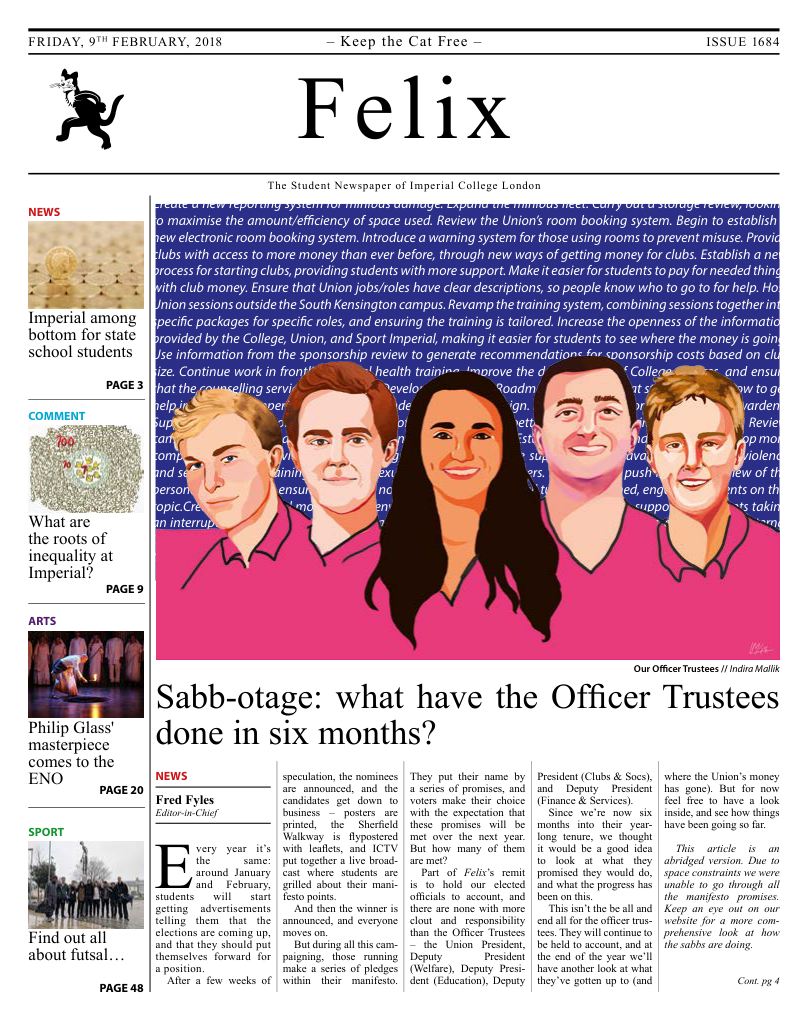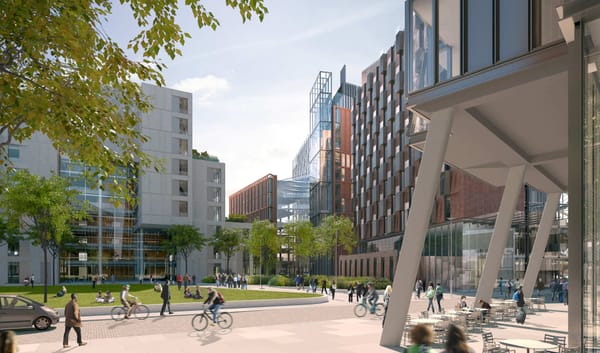Solving inequality at Imperial does not mean relocating the campus to White City
Thomas Fisher responds to Alan Perfect’s article in an attempt to solve Imperials stark inequality problem.

Having read Alan Perfect’s article on how Imperial should best tackle the obvious equality problems it possesses, I felt compelled to add my own opinions on the matter to the melee.
As Alan pointed out last week, Imperial now has the highest ratio of students from the most advantaged backgrounds to students from the most disadvantaged backgrounds. From this, Alan’s analysis is precisely right; Imperial simply isn’t offering equal opportunities to prospective students from every background.
However, what I do have to take argument with is Alan’s suggestion that we need to ‘sacrifice’ Imperial’s current location in order to tackle this problem. I fail to see how simply moving the Imperial campus from one of the most expensive boroughs to a slightly cheaper borough whilst remaining in one of the most fantastically expensive cities in the world will make any substantial difference. Prospective students will still be faced by the perception of ‘London Prices’ whether we are based in White city or Kensington. Further to this, the chances are that the college would struggle to attract the same talent it does now because, let’s be honest, unless you are really into dual carriageways, the A40 is hardly a patch on Exhibition Road.
But with all this negativity let’s take a moment to consider something that Imperial already does really well. The Imperial Bursary scheme is one of the most generous schemes of its kind in the country, with the most disadvantaged students receiving up to £5k on top of the £11k that they already receive from the UK government. This is easily enough to live a comfortable student existence in Kensington without even considering potential earnings over the 3-month summer break that most students get. If finance really is the problem, the college should promote their bursary more. It will almost certainly go much further to tackling the inequality problem at Imperial than decanting the physics department into Zone 12. Not only do I think Alan’s solution would be ineffective, I feel it completely misses the real point here: dropping people’s rent by a few quid a week isn’t the issue. The issue isn’t that disadvantaged students perceive Imperial to be too expensive, but that they perceive themselves to be unlikely to attain the AAA average offer. For real change the problem needs to be tackled twofold, with policy revised by both the government and the college.
Firstly, the College needs to wake up and rethink its admissions policy in order to ensure that it makes offers to the most talented students.
“Students from less well-off areas receive a considerably inferior education than those from privileged backgrounds”
According to the Institute of Fiscal Studies, in the academic year 2015/16 the mean average spending per head on state school A-Level students was of the order of £5k a year. In contrast, in 2015 average fees for private day schooling in the UK stood at a little over £13k, with some of the leading public schools charging substantially more than this. This vast difference in spending results in students from less well-off areas receiving a considerably inferior education than those from the more advantaged backgrounds. This is particularly true of applicants to Imperial from state schools. STEM subject specialists are particularly hard to attract and retain at state schools due to the significantly higher salaries which these staff can attain in other professions.
By the time UCAS applications come around, this vast discrepancy in educational backgrounds leads to an equally vast difference in the quality of applications between these students. But crucially, this difference in the quality of the applications is not the same as a difference in quality of the applicants! On the whole, students in state schools are not any less intelligent, hard-working, enthusiastic or driven than those who have had a private education. Give these state schooled students access to the same excellent quality of education (at Imperial College) and they are just as likely to excel as those who scored top marks in their A-Levels but paid for the pleasure.
I concede there are difficulties in identifying who these talented, but educationally under-nourished students are, but it appears Oxford and Cambridge have managed to succeed in doing so. The ratio of students admitted from the most advantaged to most disadvantaged backgrounds at the Oxbridge universities has fallen significantly over the last seven years.
Personally, I am of the opinion that the best way to identify the best students is not through A-Levels, but through a rigorous and broad interviewing process. Admissions tutors, in a face to face environment, can much better probe a student, see how they understand things and judge their suitability for an Imperial degree programme. We should not be making offers to prospective students based on how many Saturday classes they have had and how well they have been spoon fed A-Level exam answers.
Although we appear to be the worst for it, this isn’t a problem that exists at Imperial alone. The problem of the UK’s universities being dominated by the privileged few is a nation-wide problem. The government needs to act, investing more money into state schools to ensure that all students have access to the inspiring and well qualified teachers that they deserve.









